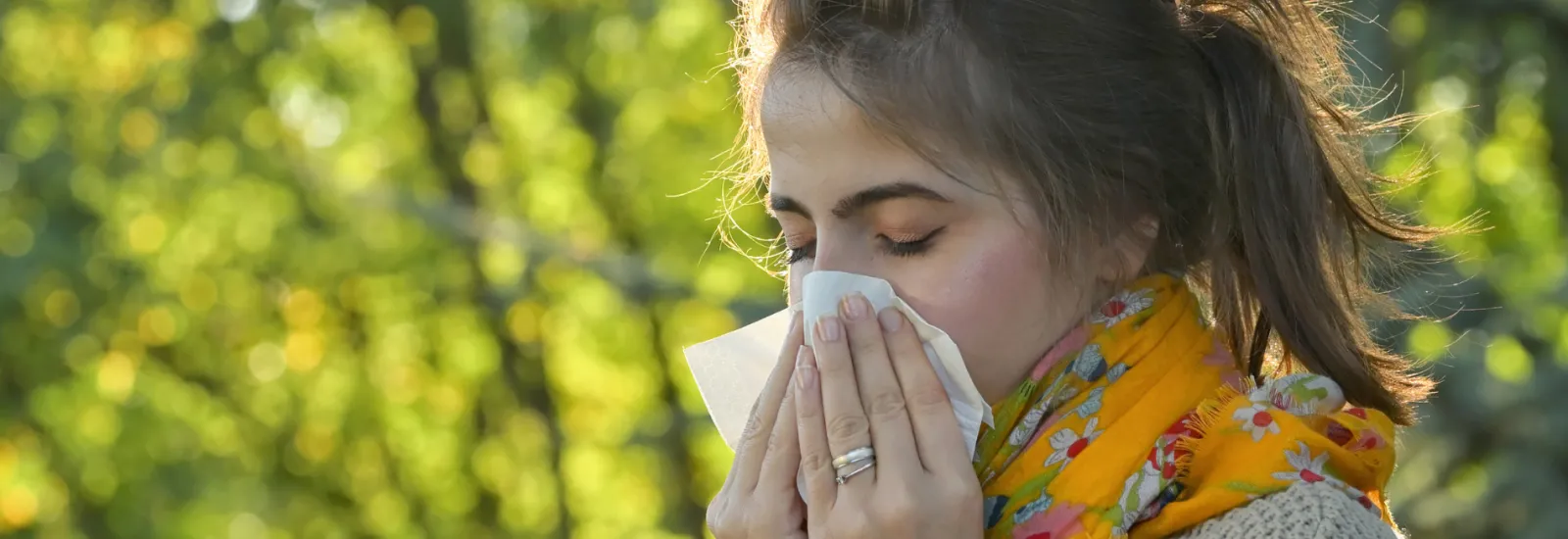
Why are my allergies so bad this fall?
The transition from summer to fall means back-to-school time
for many people, but for allergy sufferers, the seasonal switch means an
unwelcome change in their symptoms. For those feeling the impacts of fall
pollens such as ragweed and mold, you're not alone. According to the CDC,
symptoms from allergic rhinitis, including sneezing, runny nose, and
congestion, affect
as many as 60 million people a year in the United States.
If you're in Indiana and Ohio, these effects can be
compounded by weather patterns that alternate between wet and dry periods, triggering
the release of allergens into the air. Dr. Thomas Huth, Vice President of Medical
Affairs, mentioned in a recent interview
with WHIO that "allergies may be aggravated by the dry weather as it dries
out the ragweed plants and releases the pollen in large amounts this time of
year."
In addition to ragweed, mold has been high for most of
summer and into the fall. Dr. Huth explained that "at times we have had a lot
of rain and the moisture will encourage mold growth, but then when we get into
prolonged dry spells, that causes release of mold spores into the air."
As leaves dry out, die, and fall this season, that process
also will release mold into the air, making it likely allergy season will
continue to ramp up as we near fall.
What is ragweed?
According to Dr. Huth, ragweed is a daisy-like weed that
peaks in its production of pollen in dry seasons. Ragweed is common in rural
areas, particularly in midwestern states. Its
pollen production reaches a high point in mid-September, spreading after drier weather
patterns.
How do I know I'm experiencing allergy symptoms and not
something more severe like COVID-19?
COVID-19 is a viral infection, and seasonal allergies are
your body's immune response to allergens such as ragweed and mold. Although
some symptoms might be similar, there
are some key differences.
|
Symptom |
COVID-19 |
Allergy |
|
Cough |
Usually (Dry) |
Sometimes |
|
Fever |
Usually |
Never |
|
Muscle Aches |
Usually |
Never |
|
Fatigue |
Usually |
Sometimes |
|
Itchy nose,
eyes, mouth, or inner ear |
Never |
Usually |
|
Sneezing |
Rarely |
Usually |
|
Sore Throat |
Usually |
Rarely |
|
Runny or
stuffy nose |
Usually |
Usually |
|
Pink eye
(conjunctivitis) |
Sometimes |
Sometimes |
|
Nausea or
vomiting |
Sometimes |
Never |
|
Diarrhea |
Sometimes |
Never |
|
New loss of
taste or smell |
Usually -
sometimes not accompanied by runny or stuffy nose |
Sometimes |
Good news! Relief is coming.
Although it might feel like forever, Dr. Huth reassures us
"allergy sufferers should see some relief when we see our first cold spell,
which is when temperatures fall below freezing for at least 24 hours."
If you find you're struggling with the impacts of fall
allergies, Reid
Allergy is available to assess, test, and provide recommendations for your
symptoms. Dr.
Jason Casselman is a certified Allergist and Immunologist who specializes
in testing for inhalant allergies. Request
an appointment and find relief from your symptoms.

